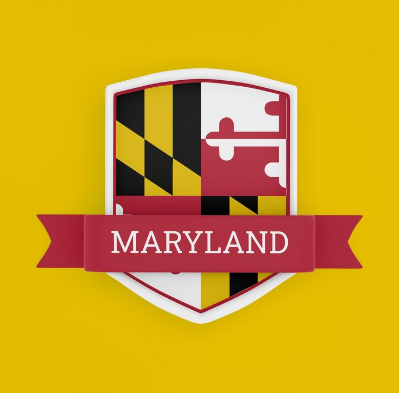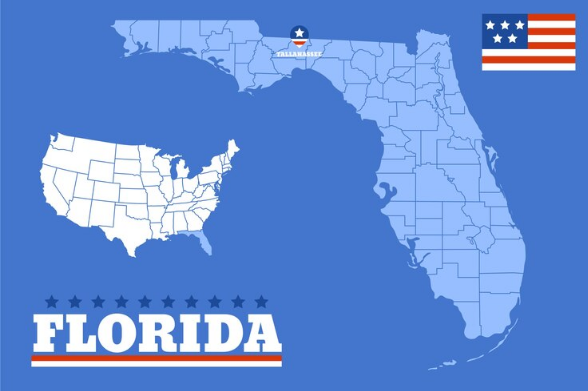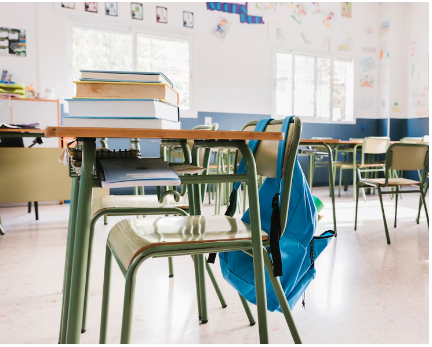Dyslexia Schools In Texas:Everything You Need to Know

When evaluating dyslexia-friendly schools in Texas, it's essential to apply a rigorous, multi-faceted approach to ensure that these institutions truly support students with dyslexia. Schools should be assessed based on their ability to offer specialized programs, trained staff, evidence-based teaching methods, and access to assistive technology.
In Texas, schools that are considered dyslexia-friendly often excel in these areas, providing a supportive environment that fosters academic and personal growth for students with dyslexia.
By collaborating with experts, collecting data through surveys and observations, and validating findings with parents and educators, we can confidently recommend schools that genuinely meet the needs of dyslexic students.
Continuous monitoring and feedback ensure that these recommendations remain relevant and effective, offering Texas families reliable guidance in choosing the right educational setting for their children.
This article will guide you through some of the top dyslexia-friendly schools in the area, providing you with the information you need to make an informed decision for your child's education.
The schools recommended have been carefully evaluated based on their specialized programs, the dedication of their staff, and their use of proven teaching methods.
We’ve spoken with parents, educators, and experts, and seen firsthand what works. The schools that made the list have shown a real commitment to helping students with dyslexia succeed, both academically and personally.
We want to make sure you have the information you need to choose a school where your child will feel supported, understood, and encouraged to reach their full potential.
What is the Percentage of Dyslexia Amongst Students In Texas?
As of the 2023–2024 academic year, approximately 6% of Texas public school students have been identified with dyslexia, totaling around 329,000 students statewide . This marks a significant increase from previous years; for instance, in 2018–2019, about 3% of students were identified as dyslexic .
The rise in identification rates can be attributed to increased awareness, legislative changes, and efforts to improve screening processes across the state. Notably, the Texas Education Agency (TEA) has implemented measures to ensure better identification and support for students with dyslexia .
It's important to note that identification rates vary among districts. For example, some districts like Humble ISD have seen identification rates as high as 9%, while others, such as Spring ISD, report rates around 2% . These variations may reflect differences in screening practices, resources, and community awareness.
Overall, the increasing identification rates indicate progress in recognizing and supporting students with dyslexia in Texas. However, continued efforts are necessary to ensure that all students receive the appropriate interventions and accommodations to succeed academically.
Sources [ Disability Rights Texas , Houston Chronicle ]
Legislation and Policies for Dyslexia In Texas
Texas has established a comprehensive legal and policy framework to support students with dyslexia. This framework encompasses early screening, mandated interventions, and alignment with federal special education laws.
1. Texas Education Code (TEC) §38.003 – Mandatory Screening
This statute requires public schools to screen all kindergarten students at the end of the school year and all first-grade students by January 31 for dyslexia and related disorders. The screening must follow a program approved by the State Board of Education (SBOE). (Texas Education Agency, Texas Education Agency)
2. Texas Education Code (TEC) §28.006 – Early Reading Diagnosis
Schools are mandated to administer reading instruments to students in kindergarten through second grade to assess reading development and comprehension. The instruments used can fulfill the requirements of both TEC §28.006 and §38.003 if they meet the criteria for dyslexia screening. Sources: (Texas Education Agency)
3. 19 Texas Administrative Code (TAC) §74.28 – SBOE Rules
This administrative code outlines the responsibilities of school districts and charter schools in delivering services to students with dyslexia. It mandates the use of evidence-based reading programs and requires that teachers receive training in instructional strategies that are individualized, intensive, and multisensory.
The Texas Dyslexia Handbook
The Dyslexia Handbook: Procedures Concerning Dyslexia and Related Disorders serves as a comprehensive guide for school districts and charter schools. It provides procedures for early identification, instruction, and accommodations for students with dyslexia. The handbook is incorporated by reference into 19 TAC §74.28, making its guidelines mandatory for compliance.
Sources: (Texas Education Agency)
Recent Legislative Updates
House Bill 3928 (2023) – The Beckley Wilson Act
Passed during the 88th Texas Legislature, this bill mandates that students identified with dyslexia who require special education services must receive them under the Individuals with Disabilities Education Act (IDEA), rather than solely under Section 504 of the Rehabilitation Act. This ensures that students receive comprehensive, individualized education plans (IEPs) with detailed progress monitoring.
Source: (Texas Education Agency)
Federal Alignment
Texas's dyslexia policies align with federal laws, including:
- Individuals with Disabilities Education Act (IDEA): Ensures that students with disabilities, including dyslexia, are identified and receive appropriate special education services.
- Section 504 of the Rehabilitation Act: Provides accommodations for students with disabilities to ensure their academic success and access to the learning environment.
The Texas Dyslexia Handbook provides guidance on how these federal laws integrate with state policies to support students with dyslexia.
Sources: (Texas Education Agency)
What Type of School Is Best For a Dyslexic?
The ideal schools are the ones where students can learn without all that unnecessary stress weighing them down.
Plus, these schools are all about recognizing the unique strengths that come with dyslexia, like creativity and thinking big-picture.
If your kid has a special interest, whether it's engineering, chess, music, or anything else under the sun, these schools give them the time and space to chase their passions.
Forget about just hunting for "reading programs" right away because, believe it or not, dyslexic students often thrive when their reading lessons align with their interests.
Now, here's the deal: if your child isn't loving school and isn't coming home all pumped up about learning, it might be time to explore other options. And guess what? That's perfectly okay – even awesome.
You can take your child out of a place that doesn't fit, even if you don't have the next school lined up right away. It's a powerful message to your child that you're in their corner and ready to support them.
Let them take a breather, catch up on some sleep, and in the meantime, you can figure out the next steps together.
Looking for learning difference/dyslexia friendly schools? Here are some must ask questions to help you pick the right dyslexia friendly school for your child.
Before attending your meeting, do a bit of background research. The more you know about dyslexia, teacher education programs and intervention programs, the more targeted you can be with your questions and the better you will understand the answers.
Support Services for Students with Dyslexia in Texas
Texas offers a comprehensive framework to support students with dyslexia, encompassing early identification, specialized instruction, legal protections, and community resources.
Early Identification and Screening
Texas mandates early screening for dyslexia to ensure timely intervention.
- Mandatory Screening: All students are screened for dyslexia and related disorders in kindergarten and first grade.
- Parental Requests: Parents can request evaluations at any time if they suspect their child has dyslexia.
Source : (Disability Rights Texas)
The Texas Dyslexia Handbook
The Texas Dyslexia Handbook provides detailed guidance on identifying and supporting students with dyslexia.
- Guidelines: Outlines procedures for screening, evaluation, and instruction for students with dyslexia.
- Implementation: All school districts and charter schools are required to follow the strategies outlined in the handbook.
Source : (Region 10 Education Service Center)
Educational Services and Accommodations
Students with dyslexia may receive support through various educational plans:
- Section 504 Plans: Provide accommodations for students who do not require special education services.(Texas Education Agency)
- Individualized Education Programs (IEPs): For students who qualify for special education under the Individuals with Disabilities Education Act (IDEA).
Educator Training and Resources
Texas offers resources to train educators in supporting students with dyslexia:
Texas Dyslexia Academy (TDA): Provides foundational knowledge about dyslexia and effective instructional strategies.
- Regional Education Service Centers (ESCs): Offer professional development and support for implementing dyslexia programs.
Source: (Texas Education Agency) (Texas SPED Support) (ESC-20)
Support and Resources for Families
Families can access various resources for assistance:
- Dyslexia Hotline: 1-800-232-3030 for information and support.(Texas Project First)
- Texas Project First: Provides resources and guidance for families navigating dyslexia services.
Specialized Centers and Programs
Several centers in Texas offer specialized services for students with dyslexia:
- Dyslexia Center of Austin: Provides evaluations, therapy, and educator training. Source: (Dyslexia Center of Austin)
- Scottish Rite for Children: Offers comprehensive care, including services for learning disorders like dyslexia. Source: (Wikipedia)
For more detailed information and resources, visit the (Texas Education Agency's Dyslexia and Related Disorders page).(Texas Education Agency)
Best Dyslexia schools In Florida
- Rawson Saunders School – Austin, TX (Grades 1-12)
Rawson Saunders offers one-on-one reading help every day with trained specialists. They use a proven method called Orton-Gillingham, which is great for helping kids with dyslexia. The school also supports students with coaching in study skills, time management, and creative classes like art and music to help them grow in all areas.
Rawson Saunders is the only full-curriculum school in Central Texas exclusively for students with dyslexia, serving grades 1–8. The school boasts a 2:1 student-to-academic language therapist ratio and has been named a 2022 Cognia™ School of Distinction for excellence in education.
- Shelton School – Dallas, TX (Grades PreK-12)
Shelton has a full center for testing and speech therapy right on campus. This means your child can get everything they need in one place. Shelton also trains teachers from around the world on how to teach students with dyslexia, showing just how trusted and experienced they are.
Shelton is the largest independent school worldwide for students with learning differences, including dyslexia. Established in 1976, it offers a comprehensive PK–12 program and houses the Shelton Evaluation Center, Speech Clinic, and Outreach Center. The school collaborates with UT Southwestern Medical Center on research initiatives.
- Celebrate Dyslexia Schools – San Antonio, TX (Grades K-8)
This school works closely with the University of Texas at San Antonio. They focus on early reading help, teaching with clear, step-by-step lessons. They also support mental wellness to help kids feel confident and calm while learning.
In partnership with the University of Texas San Antonio, Celebrate Dyslexia Schools operates a lab school that models excellence in dyslexia education. The school emphasizes structured literacy instruction and barrier-free learning environments.
Visit Website
- The Briarwood School – Houston, TX (Grades K-12)
Briarwood creates custom learning plans for each child. They have experts on staff who help with reading and spelling, and they offer programs to prepare older students for jobs or college. It’s a great school for students who need more support as they grow.
Founded in 1967, The Briarwood School serves students with diagnosed learning disabilities, including dyslexia, dysgraphia, and dyscalculia. The K–12 school focuses on individualized instruction to meet each student's unique needs.
Visit Website
- Bridgemark Center for Learning – Tyler, TX (Grades 1-12)
Bridgemark offers personalized instruction and small class sizes to support students with dyslexia and other learning challenges. They focus on building reading, writing, and math skills using proven methods. Students also receive support in social and emotional growth.
Visit Website
- Parish School – Houston, TX (Grades PK-6)
Parish School specializes in early childhood education and language development. They have speech-language pathologists and educators working together to support young children with dyslexia and communication needs. Learning through play is an important part of their approach.
Visit Website
- Sharp Academy – Lubbock, TX (Grades K-12)
Special Service: Sharp Academy provides customized education for students with dyslexia, ADHD, and related learning differences. They use multi-sensory learning methods and focus on helping students gain confidence and independence in academics.
Visit Website
- Dyslexia School of Houston – Houston, TX (Grades K-8)
This school offers reading help after school and in the summer. Parents can also take part in special workshops to learn how to help at home. It’s a great option if your child needs extra support outside of regular school hours.
This institution offers personalized, evidence-based therapy for students facing dyslexia and related literacy challenges. Services include after-school programs, summer literacy camps, and dyslexia therapist training.
Visit Website
- Renner Academy – Bryan, TX (Grades 1-8)
At Renner, students get help in small groups every day using a program called Barton, which is great for dyslexia. Parents receive updates every six weeks so they always know how their child is doing.
Renner Academy is the only specialized school in the Brazos Valley dedicated to educating students with dyslexia and other learning differences. The school provides small class sizes and individualized instruction to support student success.
Visit Website
- Excelsior Academy – Houston, TX (Grades K-12)
Excelsior gives each student one-on-one reading lessons and also offers help with handwriting and motor skills. This is perfect for students who need both reading and physical learning support.
Excelsior Academy employs educational therapy techniques, including the Orton-Gillingham approach, to assist students with dyslexia. The school focuses on improving reading and writing abilities through phonological processing and practical applications.
Visit Website
- School of Lexia – Dallas, TX (Grades 1-12)
This school is great for gifted students who also have dyslexia. They give each child a learning plan that builds on what they do best, while still helping with reading challenges. It’s a place where students can shine.
School of Lexia educates twice-exceptional students with dyslexia and related learning differences. The school utilizes a multi-sensory approach to empower students to reach their full potential.
Visit Website
- The Monarch School – Houston, TX (Grades K-12)
Monarch works with students who have dyslexia and other learning or neurological needs. They have therapy built into the school day, including speech, occupational, and emotional support.
The school offers programs from kindergarten through 12th grade, focusing on individualized education plans.
Visit Website
- The Saint Anthony School – Carrollton, TX (Grades 3-12)
This school gives students with dyslexia and ADHD full-time support from counselors and therapists. They make personalized learning plans so each child gets exactly what they need to succeed.
This accredited therapeutic school specializes in educating students with dyslexia, ADHD, and other learning differences. It has been recognized as one of the top schools in the Dallas-Fort Worth area for children with special needs.
Also read about Dyslexia Friendly Schools In California



